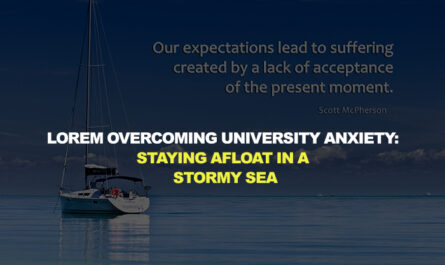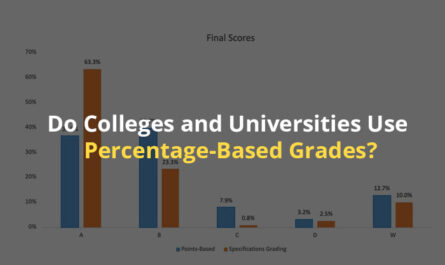Why Choosing the Right University Matters
Choosing the right university is one of the most crucial decisions you’ll make in your life. It’s not just about earning a degree — it’s about creating a future for yourself, shaping your career, and experiencing personal growth. Whether you want to pursue a career in medicine, business, technology, or the arts, the university you choose will have a significant impact on your academic development, career opportunities, and even your social life.
The right university provides a strong academic environment, excellent resources, and the chance to network with professionals in your field. A poor decision, however, can lead to frustration, financial burden, and missed opportunities. This is why it’s important to do your research, plan carefully, and think about your long-term goals when making this decision.
Factors to Consider When Choosing a University

Choosing a university involves weighing multiple factors. Understanding what’s most important to you and your future can guide you in the right direction. Let’s look at some essential factors you should consider:
Academic Programs and Course Offerings
The first step in selecting a university is understanding the academic programs it offers. A university might be known for certain strengths in particular disciplines. Ensure the institution you choose offers the course you want to pursue and has a solid reputation in that field.
What to check:
- Is your desired program available?
- Does the university offer specialized courses in your field of interest?
- Are there research opportunities or internships that will enhance your academic experience?
Location and Campus Environment
The location of the university is critical to your overall experience. Would you prefer an urban campus surrounded by opportunities for internships and social events, or a quieter, rural setting that allows for focus and self-growth?
What to check:
- Is the university close to your home, or are you open to studying abroad?
- What’s the climate like? Do you prefer a city with warm weather or cooler regions?
- What are the costs of living in the area? Can you afford housing, food, and transportation?
Reputation and Rankings
While university rankings should not be the sole factor in your decision, they do offer valuable insights into the institution’s overall quality. Pay attention to program-specific rankings as they tend to provide a more accurate reflection of the university’s strengths in the areas that matter most to you.
What to check:
- What are the overall rankings for the university?
- How does the program you’re interested in rank?
- Are there alumni or professionals in your field who attended the university?
Financial Costs and Scholarships
Higher education comes with significant costs. You’ll need to consider tuition, housing, transportation, and daily expenses. However, many universities offer financial aid in the form of scholarships, grants, and loans that can reduce the burden.
What to check:
- What is the tuition fee and total cost of attending?
- Are there scholarships, grants, or fellowships available for your program?
- What is the cost of living in the university’s location? Can you afford it?
Campus Facilities and Student Support Services
A university should offer more than just classrooms. Modern, well-equipped facilities such as libraries, laboratories, sports complexes, and student support services will enhance your overall university experience. These services could include career counseling, mental health support, or student wellness programs.
What to check:
- What campus facilities are available (labs, gyms, libraries)?
- Are there resources for student counseling and mental health?
- What career support and internship opportunities are provided?
University Selection Table
Here’s a helpful table to visually compare the most important factors to consider when selecting a university:
| Factor | Why It Matters | What to Check |
|---|---|---|
| Academic Programs | Ensures the university offers the right course | Major availability, course structure, internships |
| Location and Campus Environment | Affects your lifestyle, mental well-being, and costs | City vs rural, weather, travel distance, local culture |
| Reputation and Rankings | Reflects educational quality and employer perception | Overall and program-specific rankings, alumni reviews |
| Financial Costs and Scholarships | Determines affordability and reduces financial burden | Tuition fees, living expenses, scholarships, part-time work options |
| Campus Facilities and Support Services | Enhances your academic and social experience | Libraries, labs, career services, student wellness centers |
How to Shortlist Universities: A Step-by-Step Guide
Shortlisting universities can feel overwhelming, but following these steps can simplify the process:
Step 1: Define Your Goals
Before you start searching, think about what you want from your university experience. What’s your ultimate career goal? What subjects excite you the most? Do you want to study abroad or stay closer to home? Defining your personal and academic goals will help narrow down your choices.
Step 2: Research Thoroughly
The internet is your friend! Visit official university websites, attend online webinars, and check out virtual tours. Speak with current students and alumni to get a real sense of what studying at the university is like. Researching thoroughly will give you a clearer picture of what each institution offers.
Step 3: Create a Priority List
Think about the factors that matter most to you. Is affordability your top priority, or do you want to be in a particular city or region? Create a ranking system based on your personal preferences.
Step 4: Visit Campuses (If Possible)
If possible, visit the campuses you’re interested in. Experiencing the environment firsthand can help you get a feel for the place. If visiting in person isn’t possible, attend online information sessions and virtual campus tours.
Step 5: Evaluate and Decide
After you’ve gathered all your information, take the time to evaluate all your options carefully. Speak to mentors, family, or friends who may provide additional perspective. Ultimately, trust your instincts, and choose the university that feels right for you.




